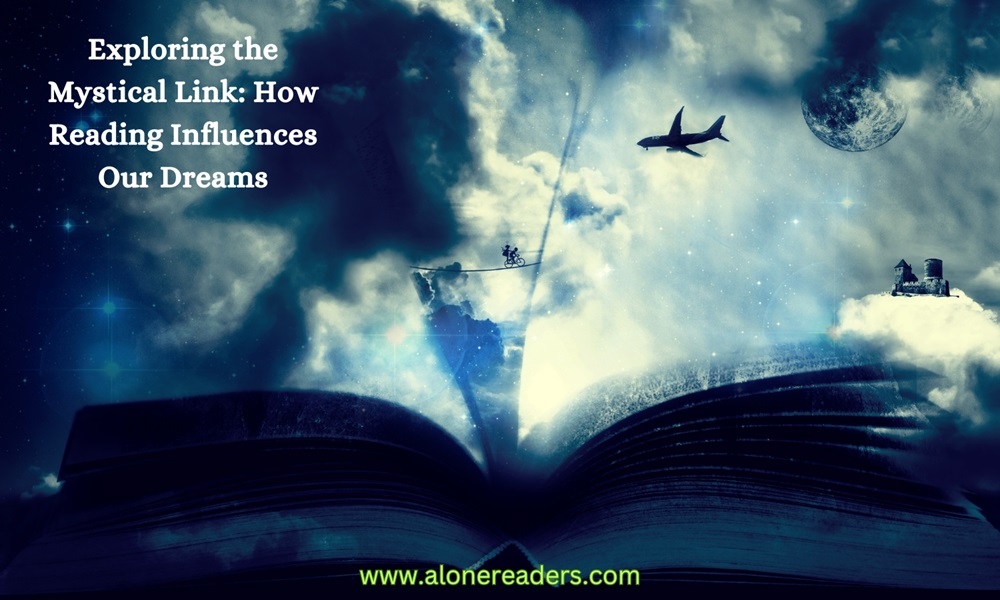
The relationship between reading and dreaming is a subject of enduring fascination, merging the boundaries of our waking lives with the enigmatic world of our subconscious. This article delves into the intricate link between these two realms, exploring how the act of reading can influence, shape, and even transform our dream experiences.
Dreams have always been a subject of curiosity and speculation. They are the mind's way of processing and making sense of the experiences and emotions of our waking life. When we read, we immerse ourselves in different worlds, ideas, and emotions, all of which can seep into our subconscious and manifest in our dreams.
The act of reading before bedtime has long been a ritual for many. This practice not only aids in relaxation but also sets the stage for the content of our dreams. The material we read can directly influence the nature and content of our dreams. For instance, a thriller or horror novel may seed the framework for a vivid, perhaps unsettling dream, while a romance novel might result in dreams that are more whimsical or emotionally charged.
This phenomenon can be partly explained by the brain's neural activity during reading and dreaming. Reading activates specific regions in the brain associated with comprehension, visualization, and emotional processing. When we dream, similar regions are activated, suggesting a neurological link between the content we read and the dreams we experience. This connection highlights the brain's remarkable ability to blend reality with imagination, weaving elements from our waking life into the tapestry of our dreams.
Moreover, reading influences dreams through the process of emotional and cognitive engagement. When we read, we're not just processing words on a page; we're emotionally and intellectually involved with the narrative. This engagement does not just end when we close the book; it extends into our sleep, where our brains continue to process and engage with these narratives. This ongoing mental activity can often manifest in our dreams, where the stories we read play out in new, sometimes bizarre, ways.
The language and style of the literature we read also play a crucial role in shaping our dreams. Rich, descriptive language can create vivid imagery in our minds, imagery that often reappears in our dreams. On the other hand, complex, abstract ideas encountered in our reading can lead to more introspective and thought-provoking dreams, reflecting the depth of our cognitive engagement with the material.
The connection between reading and dreaming is not just a one-way street; it is reciprocal. Just as reading can influence our dreams, our dreams can, in turn, impact our reading experience. Dreams can provide us with new perspectives or ideas that we bring back to our reading, allowing us to see the material in a different light. This interplay can lead to a deeper understanding and appreciation of the literature we read.
Furthermore, the influence of reading on dreams extends beyond the immediate content of the books. Reading cultivates imagination, empathy, and critical thinking skills, all of which play a significant role in how we dream. A well-developed imagination can lead to more creative and vivid dreams, while empathy can lead to dreams that are more emotionally nuanced. Similarly, critical thinking skills can result in dreams that are more complex and layered, reflecting a deeper level of subconscious processing.
It is also important to consider the role of individual differences in the reading-dreaming connection. Not everyone will experience the same influence of their reading material on their dreams. Factors such as personal interests, emotional state, and even one's ability to recall dreams play a significant role in determining how much our reading influences our dreaming.
In conclusion, the connection between reading and dreaming is a complex and fascinating one. It underscores the profound impact that our waking activities, particularly reading, can have on our subconscious mind. This interplay not only enhances our understanding of the human psyche but also enriches our experiences both in the waking world and in the mystical realm of dreams. Whether we are lost in a book or wandering in a dream, we are engaging in a profound process of mental, emotional, and imaginative exploration, one that reveals the boundless potential of the human mind.